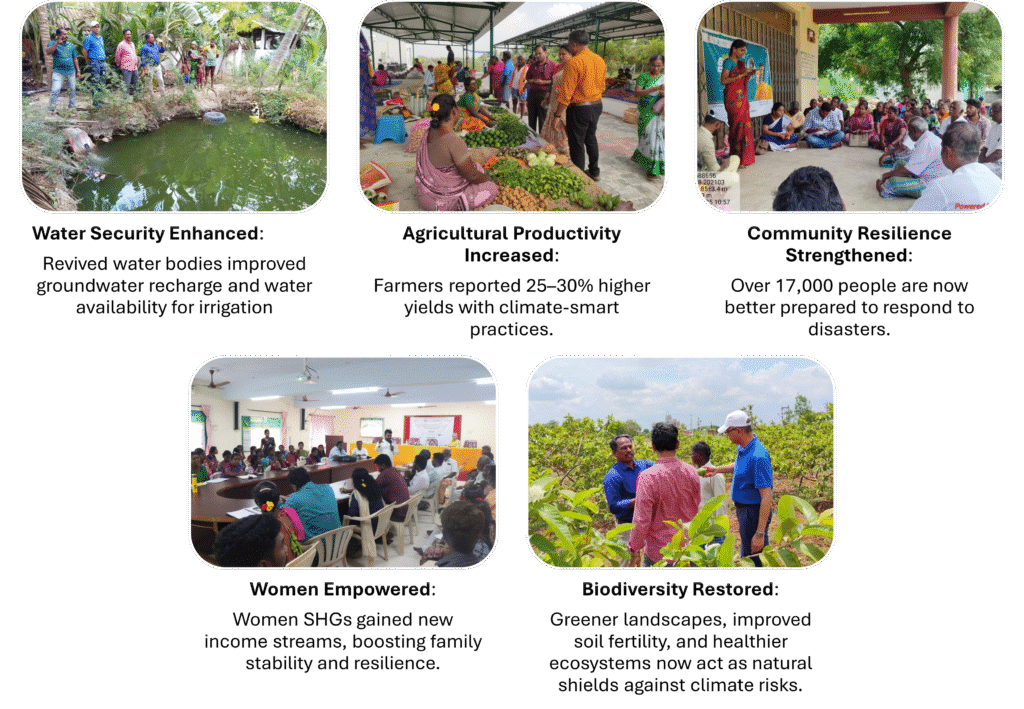
Ecological Disaster Risk Reduction (ECO DRR)
The Mission Samriddhi ECO-DRR (Ecosystem-Based Disaster Risk Reduction) Project is a pioneering initiative implemented by SEEDS NGO in collaboration with Mission Samriddhi, UNICEF, and IIT Gandhinagar. The project aims to harness the power of ecosystem restoration and nature-based solutions to reduce disaster risks, adapt to climate change, and build long-term community resilience. By linking traditional knowledge with scientific tools, ECO-DRR creates a sustainable model where communities become both the protectors and beneficiaries of their environment.
Project Location and Reach
The project is being implemented in the Kariapatti block of Virudhunagar district, Tamil Nadu, covering 25 panchayats and directly benefiting over 17,550 individuals. These include school children, adolescents, youth, farmers, and women’s groups. Through its holistic interventions, ECO-DRR not only addresses environmental degradation but also creates stronger social safety nets, ensuring that communities are better prepared for floods, droughts, and other climate-related disasters.
Key Project Interventions
1. Ecosystem Restoration
Natural resources such as ponds, lakes, green corridors, and wastelands were scientifically restored and rejuvenated. These ecosystems now serve as natural buffers against floods and droughts, improving water retention, recharging groundwater, and reducing soil erosion. Reviving biodiversity has also strengthened food chains, improved pollination, and enhanced soil fertility, directly supporting farming communities.
2. Climate-Resilient Agriculture
Farmers were trained in organic farming, crop diversification, intercropping, and soil health management. In partnership with IIT Gandhinagar, climate advisory tools such as the Weather App and TN Alert were introduced to help farmers make informed, weather-smart decisions. These interventions have led to increased yields, reduced input costs, and more stable incomes, making agriculture more resilient to climate uncertainties.
3. Community-Based Disaster Preparedness
Disaster preparedness was strengthened at the grassroots level through mock drills, awareness campaigns, and village-level early warning systems. Local youth were trained as first responders, equipped with the skills to assist during floods, cyclones, or drought emergencies. Village-level institutions were empowered to create disaster management plans, ensuring faster and more coordinated responses during crises.
4. Livelihood Diversification & Women Empowerment
Recognizing the importance of reducing economic vulnerability, the project promoted non-farm livelihood opportunities such as tailoring, food processing, micro-enterprises, and small-scale trades. Women Self-Help Groups (SHGs) received training, access to finance, and market linkages, enabling them to set up enterprises. This not only increased household income but also enhanced the leadership role of women in disaster preparedness and resilience-building.
Impact

